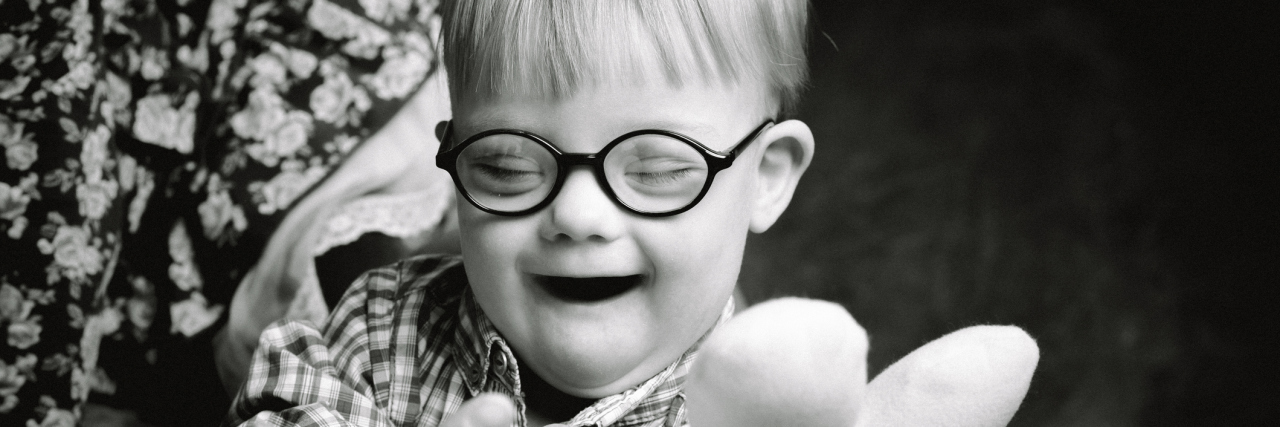Packing lunches, the morning rush, homework and paperwork, the school year is in full swing. If you are like me, the stress of the school year is overwhelming and having one more thing to think about just might make your head explode. So, I understand if talking with your child about their peers with a disability might be the last thing that you think you have time for. Or, if you were like me before I had my son with Down syndrome, it might not even be on your radar — I completely understand.
I’m not here to give you a list of things to do or say to your child about my child with Down syndrome. Honestly, I don’t want for you to talk to your child specifically about my child. Rather, I am asking you, parent-to-parent, to consistently talk with your children about kindness and to celebrate all of the things that make each of us unique. I promise to do the same. Along with the questions each night about the academic piece of their day, include, questions like: “How were you a helper today?” “What did you do for somebody else?” “How were you kind today?”
Growing up, I was a super competitive person, always working extra hard to ensure I would get straight A’s on my report card. I was raised to be kind and polite, but I had an internal drive to be “smart” too. The only measure of “smart” I knew was perfect grades on a report card. Thankfully, my son with Down syndrome has changed my perspective on life in many ways, but most importantly, is how he has shaped my parenting style. In our home, above all else, we teach kindness and celebrate everyday good deeds with the same enthusiasm as a perfect report card.
I have two boys, both in inclusive classrooms. One that is being included with his “typically developing” peers and the other that is a “peer model” in the same developmental preschool classroom my older son attended.
For my son that is included with his “typically-developing” peers in a general education classroom, I don’t wish for his peers to treat him special or different from the rest of the friends in the class. I wish for them to treat him with the same kindness they have for all their classmates. I am not deceiving myself; I do understand that the interactions between my son and your child might be different than the other interactions in the classroom between peers. I know that your child may need to wait a little longer to get a response from my son when they say “hi” to him. Your child may need some extra patience when my son does something unexpected because he is overwhelmed by his sensory needs. It’s all true. But, if your child leads with kindness, they will always know how to respond to my son and all of their other peers, too. They will always treat my son the way they would like to be treated, which of course, is the same way my son wants to be treated.
With a kind heart, kids don’t only see my son for his differences — they see him as a friend with whom they share common interests. They don’t find ways to avoid him; they think of ways to include him. They don’t tease him; they celebrate everybody’s uniqueness and understand that it is because we are all unique that the world is interesting.
As a mom of a child with Down syndrome, I ask my fellow parents this: along with helping your child to study for their spelling test, talk with them about how they can help their peers and teacher each day. Talk with your child about all of the ways they are unique and build your child’s self-esteem so they celebrate uniqueness in others. Acknowledge acts of kindness with as much pride as perfect test scores. Let’s change the future of the world together!
Getty image by magda_istock

